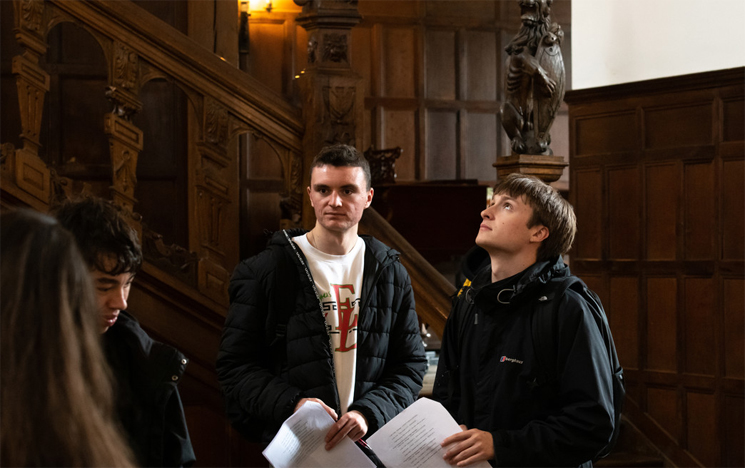History
Study at a university ranked 19th in the UK for history*, with specialist access to the world-famous Mass Observation Archive. Browse our history modules below.

Browse our modules
You can see our full list of history modules below.
Year 1
Year 2
-
Autumn Semester
- Culture and Revolution in the Middle East and North Africa since 1914
- Decoding Cultures of Technology and Social Change
- Freedom and Power in the American Century
- Ideas of History
- Paying for the Past (E)
- The Making and Unmaking of Europe from the 1870s to the present
- The People's Century? Britain after 1914
-
Spring Semester
- Time and Place 1661: Slavery in English America
- Time and Place: 1661: Slavery in English America
- Time and Place 1899: Apex Empires, Savage Wars
- Time and Place: 1899: Apex Empires. Savage Wars
- Time and Place: 1942: Holocaust
- Time and Place: 1948: The Arab-Israeli Conflict
- Time and Place:1959 Havana: Revolution in Latin America
- Time and Place:1959 Havana: Revolution in Latin America
- Time and Place: 1984: Thatcher's Britain (Observing the 1980s)
- China's Encounter with Europe: History Lessons for Business
- Global History from the Global South
- Race, Ethnicity and Nationalism
Year 3
Not sure how to choose?
Follow our top tips for choosing your modules. You can also find out about our teaching structure, assessment process and how your credits transfer back to your home institution.
Find out more.
Which school will I study in?
You'll study in the History department, which is part of the School of Media, Arts and Humanities.
Some of our expert academic staff have appeared on television documentaries, written books and helped to create new online archives.
Find out more.
Our history research
Sussex historians have helped to generate new online archives including Old Bailey Online, The Joseph Hooker Correspondence Project and the world famous Mass Observation Archive.
Our research influences the way we teach, and you learn from academics at the forefront of their fields.
Find out more.
Contact us
If you are studying at Sussex for a semester or year and have questions, email sussexabroad@sussex.ac.uk.
*The Times and Sunday Times Good University Guide 2021. **(Our campus is nine minutes by train from Brighton & Hove) survey by accommodation providers Student Living by Sodexo ***Access to facilities is dependent on the module you study. Rankings based on full undergraduate degree at Sussex.